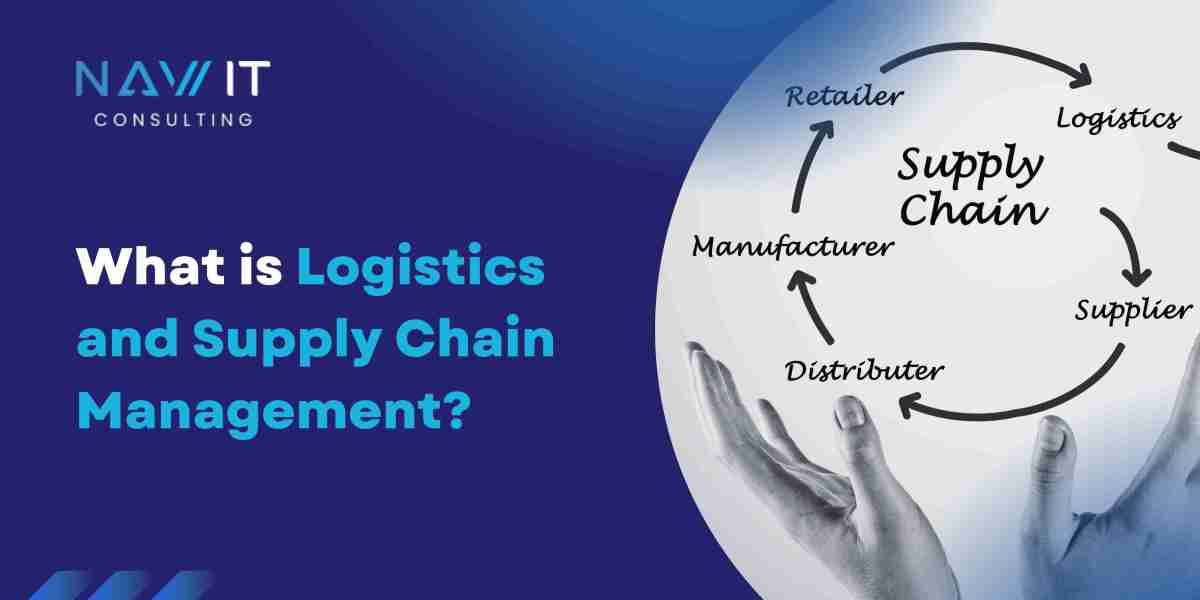Introduction
In today’s rapidly evolving market, logistics and supply chain management are crucial for business success. Companies of all sizes leverage these strategies to gain a competitive edge, improve efficiency, and enhance customer satisfaction. This comprehensive guide will delve into the intricacies of logistics and supply chain management, providing insights into their importance, best practices, and how to optimize these processes for your business.
What is Logistics?
Logistics involves the detailed coordination of complex operations related to the movement and storage of goods. It focuses on ensuring that products are delivered on time, at the right place, and in the right condition.
Key Components of Logistics
Transportation: Selecting the best modes of transport to move goods efficiently.
Warehousing: Proper storage of goods to ensure they are in good condition when needed.
Inventory Management: Keeping track of stock levels to prevent shortages or overstocking.
Order Fulfillment: Ensuring customer orders are processed and shipped promptly.
What is Supply Chain Management?
Supply chain management (SCM) encompasses the entire network involved in creating and delivering a product, from raw materials procurement to final delivery. SCM aims to streamline processes, improve efficiency, and create value across the entire supply chain.
Key Components of Supply Chain Management
Procurement: Acquiring raw materials and components needed for production.
Production: The process of manufacturing goods.
Logistics: Managing transportation, warehousing, and distribution.
Distribution: Delivering products to end customers.
The Importance of Logistics and Supply Chain Management
Both logistics and supply chain management are vital for maintaining a competitive edge. Efficient management of these areas can lead to cost savings, improved customer satisfaction, and increased profitability.
Cost Reduction
Effective logistics and SCM strategies help businesses reduce operational costs. Optimizing transportation routes, improving inventory management, and streamlining production processes can cut down on expenses and pass the savings onto customers.
Improved Customer Satisfaction
Timely delivery of goods, accurate order fulfillment, and high-quality products are key factors in customer satisfaction. Logistics and SCM play a crucial role in ensuring these aspects are consistently met.
Enhanced Efficiency
Integrating logistics and SCM practices helps streamline operations, reduce lead times, and improve overall efficiency. This can lead to faster production cycles, better inventory turnover, and more responsive customer service.
Best Practices in Logistics Management
To excel in logistics, businesses should adhere to best practices that enhance operational efficiency.
Implement Advanced Technology
Leveraging technologies like warehouse management systems (WMS), transportation management systems (TMS), and real-time tracking can significantly improve logistics operations. These tools provide visibility into inventory levels, transportation routes, and order statuses.
Optimize Transportation Routes
Efficient transportation routes reduce fuel costs, delivery times, and logistics expenses. Use route optimization software to find the most cost-effective and time-efficient routes for your deliveries.
Improve Inventory Management
Accurate inventory management prevents stockouts and overstocking. Implement inventory management systems to provide real-time data on stock levels and automate reordering processes.
Enhance Warehousing Efficiency
Modernizing warehousing practices can boost efficiency. Use automation and robotics to streamline storage and retrieval processes, and ensure your warehouse layout is optimized for quick access.
Best Practices in Supply Chain Management
Effective supply chain management requires a strategic approach that integrates various functions and processes.
Foster Strong Supplier Relationships
Building good relationships with suppliers can lead to better pricing, more reliable deliveries, and improved product quality. Engage in regular communication and negotiate terms that benefit both parties.
Implement End-to-End Visibility
End-to-end visibility across the supply chain helps identify bottlenecks, monitor performance, and make informed decisions. Use SCM software to track the flow of goods from raw materials to final delivery.
Focus on Sustainability
Incorporating sustainable practices into your supply chain can reduce environmental impact and appeal to eco-conscious consumers. Consider options like reducing waste, optimizing energy use, and sourcing from sustainable suppliers.
Continuously Improve Processes
Regularly review and refine your SCM processes to adapt to changing market conditions and customer needs. Use performance metrics and feedback to identify areas for improvement.
The Role of Data Analytics in Logistics and SCM
Data analytics enhances logistics and supply chain management by providing insights into various aspects of operations, leading to better decision-making.
Predictive Analytics
Predictive analytics can forecast demand, identify potential disruptions, and optimize inventory levels. This helps businesses proactively address issues and plan for future needs.
Real-Time Monitoring
Real-time data allows businesses to monitor operations, track shipments, and manage inventory effectively. This improves response times and ensures prompt issue resolution.
Performance Metrics
Tracking key performance indicators (KPIs) helps evaluate the efficiency of logistics and SCM processes. Metrics like order accuracy, delivery times, and inventory turnover provide valuable insights for continuous improvement.
Challenges in Logistics and Supply Chain Management
While logistics and SCM offer numerous benefits, they also come with challenges that businesses must address.
Supply Chain Disruptions
Unexpected events like natural disasters, political instability, or pandemics can disrupt supply chains. Developing contingency plans and diversifying suppliers can help mitigate these risks.
Complexity of Global Operations
Managing a global supply chain involves navigating different regulations, currencies, and cultural differences. Effective communication and local expertise are essential for successful global operations.
Balancing Cost and Service
Finding the right balance between cost reduction and service quality can be challenging. Businesses must carefully evaluate their strategies to meet customer expectations without compromising profitability.
Future Trends in Logistics and Supply Chain Management
The field of logistics and supply chain management is continuously evolving. Staying informed about emerging trends can help businesses stay competitive.
Automation and Robotics
Automation and robotics are transforming logistics and SCM by increasing efficiency and accuracy. Technologies like autonomous vehicles, drones, and robotic warehouses are becoming more prevalent.
Artificial Intelligence and Machine Learning
AI and machine learning enhance decision-making and predictive capabilities in supply chain management. These technologies analyze large volumes of data, identify patterns, and make optimization recommendations.
Blockchain Technology
Blockchain technology offers greater transparency and security in supply chains. By providing a decentralized and immutable record of transactions, blockchain can prevent fraud, ensure product authenticity, and improve traceability.













